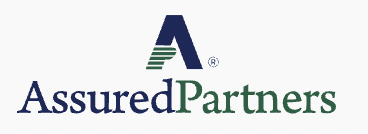HHS Proposes ‘Powerful’ Penalties for Providers Found Information BlockingHomeCare Dive | By Rebecca Pifer Regulators on Monday proposed a long-awaited rule tying payments for hospitals and doctor’s offices in three popular Medicare programs to compliance with data-sharing regulations. Medicare payments could soon be on the line for hospitals and doctor’s offices found blocking the free electronic flow of health information. That’s if a new rule proposed by the HHS on Monday is finalized. Under the rule, providers that block the access, exchange or use of electronic health information could lose out on select annual payment increases, receive lower quality scores or be kicked out of a value-based program in Medicare. “I think these are going to be very powerful incentives to change the whole national conversation,” said Don Rucker, who led the Office of the National Coordinator during the Trump administration. The ONC oversees U.S. health IT. “The way they resonate through the payment system — this directly affects the payment systems of providers,” Rucker said. Long-awaited penaltiesProviders have been waiting for regulators to add teeth to rules forbidding information blocking that were finalized in early 2020. Specific punishment for health IT vendors found information blocking was included in the law backing the rules — an up to $1 million fine per violation, which regulators officially enacted this summer. The statute — the 21st Century Cures Act passed in 2016 — did not include specific penalties for providers. Instead, Congress left it up to the secretary of the HHS to establish disincentives, without granting the department any additional authority. That lack of clarity complicated oversight efforts, according to senior government officials. Monday’s proposal “starts the process to fill in the last remaining oversight aspects” of the information blocking rules, Steve Posnack, deputy national coordinator for health information technology, told reporters during a Monday press conference. Experts have slammed the lack of data-sharing enforcement on healthcare providers as a major oversight, since providers account for the majority of information blocking complaints, according to government data. The new rule attaches providers’ Medicare payments to information blocking compliance. The move was appropriate given the intent of the statute, according to Rucker. “It’s highly in line with public policy and the pretty clear intent of Congress in the Cures Act,” Rucker said. Under the proposed rule, hospitals participating in the Medicare Promoting Interoperability Program (MPIP) — which pays providers for EHR adoption and use — won’t qualify as meaningful EHR users if they’re found guilty of information blocking. As a result, hospitals could lose 75% of the annual market basket increase. Critical access hospitals would have their payments associated with successful participation lowered to 100% of reasonable costs, instead of 101%, according to the HHS… |

